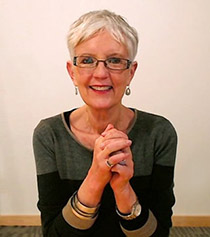How to Work with Traumatic Memory That Is Embedded in the Nervous System
 |
with Peter Levine, PhD ;
|
 |
with Peter Levine, PhD; Pat Ogden, PhD; Bessel van der Kolk, MD; and Ruth Buczynski, PhD
Sign up for a Gold Subscription

This is a learning community for practitioners. We can’t wait to hear what you’re going to use with your clients
But please do NOT:
- seek advice for personal problems
- ask for referrals
- post links or advertise a product
- post about technical problems
I loved the concept of creating a grounding tool kit with my client.
From today’s session I’ve learned to 1) first help clients who dissociate to establish supports in grounding e.g. through fragrances, before 2) attempting to re-integrate their physical sensations of trauma.
I like the idea of looking back to the trauma to look for strengths and self-protection. I find this very empowering. it’s a great reframing.
Thank you for all the information. i love the applicability of the strategies and i feel inspired to work with them first thing in the morning and to tune in with the clients and discover whatever works for them to facilitate healing. thank you
I have been reassured to keep to my practise of not unpacking too much in one session. My work with African veterans has taught me to GO SLOW. I am encouraged by the reassurance that slow is actually fast?
I worked in a prison and was watching an inmate dissociate and correctional officers were re-traumatizing him during his dissociation. correctional officers would not listen to anybody because they were so focused on punishing anybody that was not a correctional officer
Applause and gratitude! I am a client and have felt relief from each and every therapist. Right here are masters in their field giving us the latest way to help us.I have learned so much and can resonate to the methods be-
ing described. I am overwhelmed with gratitude and thank each and every therapist for adding quality to my life. Bravo, bravo, bravo! Many,many thanks. Stay well and happy as you continue to make this world a better place.
In one way, I regret I am now retired….BUT much of this wisdom helps me understand the behaviour of friends and family members, so I hope to be able to be more aware and sensitive in my interactions with them. I am not their therapist but I am a fellow traveller, as they journey. And I can sometimes be of help when they are negotiating their relationships with their family and/ or friends.
This indeed is what Ruth B. talks about, in the way we can affect our community,
Thank you all.
Thank you for this great opportunity to learn about this topic of trauma management from such wise and generous experts.
I am a coach, I live in Caracas, Venezuela, and this knowledge is key to supporting my coachees better and better from my coaching spaces.
Luisa Elena Sucre
lesucre@gmail.com
What a wonderful job NICABM, thank you so much. I’m a mother of an adopted child with some challenges, and this is also helping me as a parent understand some of the complexities around trauma. Much appreciated!
Thank you to all experts. I am not a practitioner, I am a client. This is powerful, sometimes daunting, sometimes optimistic, sometimes overwhelming information. I am grateful for all the work being done, and communicated, so thoughtfully and comprehensively. I will share with the professionals in my life.
I am not a practicing professional, though I am a volunteer host and moderate a forum for CPTSD survivors. This series has been excellent in helping me with current healing strategies and information on how survivors may present. It allows for more compassion and insight, for myself and others, for which I am deeply grateful. Thank you.
So many gold nuggets here! Learning more around the different types of memories was particularly interesting for me along with the very useful ideas of working with clients with flashbacks.
thanks thanks thanks. i keepers listening to women Who have suffered abuse bring children and then adults.
I m not psychologist but I accompany tiempo and I hace some professionals to refer them when I see they need profesional help.
listening to the program I confirm some practises that help them a lot to come Backup to the present when past graba their minas and bodies.
as I learn from the sessions I get to understan better hoy dos it happen in them and May algo be in my own experience too
I’ve learnt so much. Thank you. I was really interested in Ruth’s comment on ‘self-loathing’. Would love to explore more on how to work with this aspect.
These are helpful topics to learn about. Luckily the field is gradually moving away from talk therapy and toward somatic treatments for trauma. Although there’s still a long way to go.
In terms of format of the talk I found it quite ADHD-like to continually switch between an expert explaining something and the presenter commenting without letting the expert finish what they are saying. It would be much easier to follow and commit to memory to let someone explain without continuous interuption.
I felt the same at first. However, once I began to see that Ruth B. was condensing the information and drawing out the key points, allowing other therapists to enlarge on, or support them, I began to adapt myself to this format. To expand the sessions, by giving more time to the other speakers, would mean moving along more slowly with information. To me this format is somewhat like reading the outline and first and last paragraph of segments in a book. In our work with clients we give them room to fully express themselves so it feels a bit counter-intuitive. But this is education, not therapy. =)
Best takeaway: Flashbacks (emotional) used as a way to punish self. My thanks to Ruth Lanius.
Yes! Self – loathing.. a huge issue!
THANK YOU so much to everyone that dedicates themselves to help people that suffer from trauma. Thank you so much to the people with the GOLD SUBSCRIPTION. That enables many who cannot afford it at the moment be able to tune in to these helpful lessons & materials, and want to subscribe to NICABM to learn more, and be able to give back in the future. Getting unstuck from the trauma prison will unleash so many talents, and enable people to focus and access purpose & drive to share those talents with the world. Much Love to you for putting this professional webinar together.
I so appreciated this session, even though (sadly) I missed the first portion. I am not a clinitian, but I do a form of integretive work that is calming. This session spoke to my own history of trauma. As an infant and young person. Perhaps there are others like me, who have a strong biographical memorya of traum. Mine starts from about 8 or 9 months old. That doesn’t exclude trauma that may have slipped past conscious memory. I found the 4 techniques for transforming the threat bias were very helpful, as well as the discussion regarding flashbacks and pacing. I like the idea of a ‘grounding kit’ as well as prioritizing safety as essential prior to attempts to integrate traumatic memory. I greatly appreciate NICABM’s work to share these ideas/strategies/ and newer ways of treating and perceiving trauma. Thank you
To help rest nervous system, under hypnotic trance, I have entered into a non mind memory state, but the body remembered, and the releasing was through shaking, various areas, various ways, all spontaneous and no thinking attached, just observation and allowance.
it took many sessions, till the charge of negative past experiences became neutral.
This is another way of releasing.
I love the emphasis of the client feeling safe. and making the client resilient with positive past and current experiences and resources.
love this program.
thank you.
very valuable information being shared.
remember that flashbacks feel like the trauma is reoccurring in the present when it’s not and to get out of a flashback to use mindfulness and grounding. pay attention to the positives in the environment or positive memories and see what they are already doing to cope. pacing is important and safety must be established first. distress tolerance and meditation. loving kindness practices.
Hopefully the usage of these techniques by me should come to light as soon as possible. Im currently studying Psychology and I want to go into Psychotraumatology field. The direction will come out on the way, the reason is simple, here where I live its so hard to get proper assessment of your mental condition and Im sure many people get helped but so many from my environment are left out, either wrongly diagnosed or just waiting in a queue for help, too many of my friends or neighbours suffer from for example lack of integration. the treatment for depression doesnt seem to have affect on them or trauma lives within them. it triggered me to start this journey and help people more efficient.
Im currently studying Psychology and I want to go into Psychotraumatology field. The direction will come out on the way, the reason is simple, here where I live its so hard to get proper assessment of your mental condition and Im sure many people get helped but so many from my environment are left out, either wrongly diagnosed or just waiting in a queue for help, too many of my friends or neighbours suffer from for example lack of integration. the treatment for depression doesnt seem to have affect on them or trauma lives within them. it triggered me to start this journey and help people more efficient.
The idea of pacing is so important. It is not our right to impose disclosures of trauma on clients who are not ready and perhaps don’t yet feel we have created a safe space for them to do so. Thank you for this very insightful and helpful training!
Thank you for this training. Knowledge on how the body/ brain retains trauma and how procedural memory can be a key to healing was eye opening. I will use this knowledge to be more aware and attuned to how this presents in my clients and use the strategies that were presented to help them identify and create new ones at their pace.
How about childhoodpassion and loveing kindness that can also be present in early life.
that can also be present in early life. 
